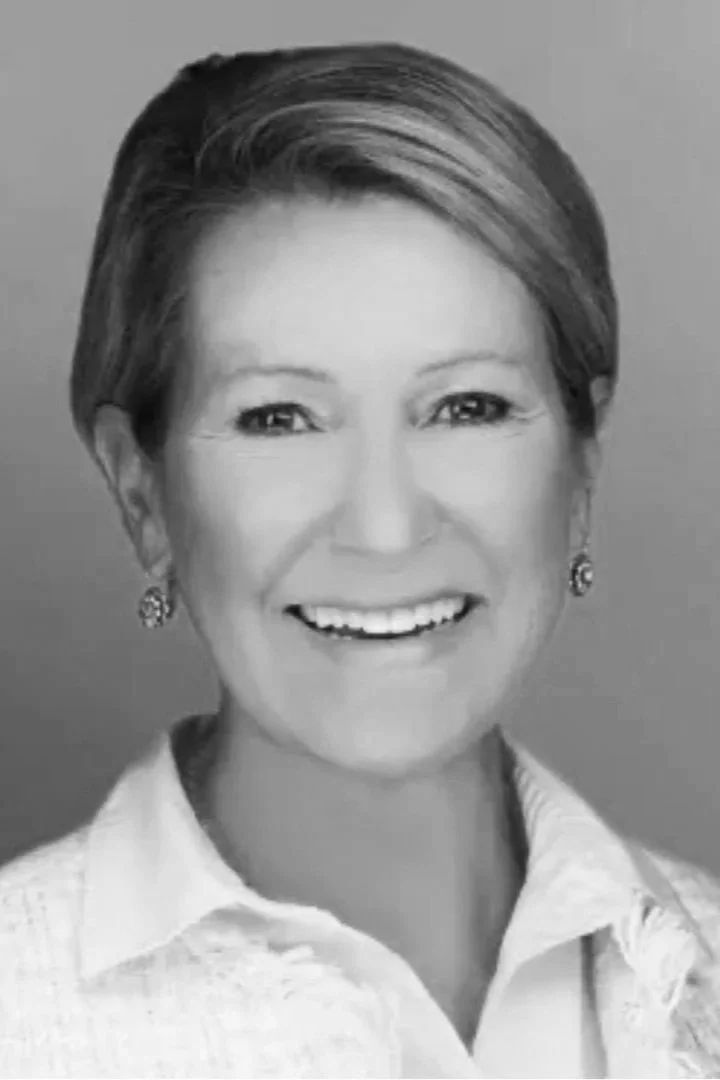Madeleine Homan Blanchard
The Evolving Role of Leadership Coaching
Madeleine shared her reflections on the evolution of leadership coaching, the role of leaders as both leaders and team members, and why the concept of “teaming” is often missing in traditional leadership models.
Wahl Madeleine Homan Blanchard
Madeleine Blanchard is the Chief Coaching Architect and a Blanchard Leadership Certified Coach at Blanchard, as well as co-founder of Blanchard Coaching Services. She is a co-creator of the Coaching Management System, Blanchard’s proprietary software that enables organizations to deliver coaching at scale. With 30+ years of experience in consulting, executive and team coaching, facilitation, and keynotes, Madeleine helps organizations leverage professional coaching, teach coaching skills to leaders, and build strong coaching cultures.
For you from Chris, Alex, & Corentus
From the First Friday with a Thought Leader event
Key Insights (below) & YouTube (43:20)
“The Evolving Role of Leadership Coaching” (43:20)
• The Evolution of Coaching: Blanchard, who entered the field in 1989, was instrumental in its early development, including co-founding the ICF certification process. The profession evolved from an intuitive practice using simple tools, such as the "wheel of life," into a global industry.
• Current Industry Challenges: The coaching market has "exploded," leading to significant saturation. A primary challenge for even masterful, experienced coaches is differentiating themselves and standing out in a crowded field.
• The Rise of Team Leadership Coaching: Increasing workplace complexity, characterized by individuals leading and participating in multiple teams, has made team leadership coaching a critical and expanding niche. The ability to manage cross-team dynamics is now a key performance differentiator.
• The Dichotomy of AI in Coaching: The dialogue framed the impact of AI as a central debate. AI is poised to automate and scale the more basic, skill-building aspects of coaching, addressing significant cost and logistical barriers for organizations. However, there was a strong consensus that AI cannot replicate the essential human elements of masterful coaching. The core of coaching, which involves deep intuition, psychological safety, non-judgment, and what Blanchard termed "unconditional love" for the client, remains a uniquely human faculty.
• Strategic Imperative: The advised response to AI is not fear or blind adoption but strategic experimentation. The session concluded that as AI handles repetitive tasks, the most valuable human skills will be amplified. This creates a new mandate for coaches: to help leaders and organizations "elevate their humanity," turning empathy and emotional intelligence into their most critical assets.
• A Pioneer's Journey: Blanchard began her coaching career in 1989 after leaving a successful acting career. The decision was driven by a powerful epiphany that acting was no longer her path. She was introduced to the nascent concept of coaching by Henry Kimsey House (founder of the Co-Active Training Institute), which she embraced intuitively.
• Founding an Industry: Blanchard was a key figure in formalizing the profession. She, along with Laura Berman Forkang and Stephen Clooney, started the certification process for the International Coach Federation (ICF). A primary challenge in these early days was articulating how coaching was distinct from established fields like consulting, therapy, and counseling.
• Early Practice and Niche: Blanchard built her initial practice coaching actors, models, and other artists. She eventually identified her niche as working with "creative geniuses," defined by Immanuel Kant's concept of individuals who create something new from existing materials or ideas. She described her early belief in the power of coaching as "messianic," feeling it could solve all problems.
• Market Saturation and Differentiation: A persistent complaint since the industry's inception has been the proliferation of unqualified individuals calling themselves coaches. This issue has intensified as the industry has "exploded." The result is a highly saturated market where even "very experienced, masterful coaches are struggling to stand out in the crowd."
• The Rise of Team Leadership Coaching: The discussion identified team leader coaching as a crucial and growing specialization. This trend is driven by the exponential increase in workplace complexity. Unlike in the past, professionals now often lead multiple teams while also being members of several others.
According to Blanchard, "the difference is going to be, are you a good team member? Are you good at helping your team interface with another team to get something done... That's going to be the differentiator."
The most significant portion of the dialogue was dedicated to the role of AI, examining its potential to both disrupt and enhance the coaching profession.
• The Core Debate: Replacement vs. Assistance: The discussion was framed around two opposing viewpoints: that AI will eventually take over coaching entirely versus the view that it will serve primarily as a powerful assistant, unable to replace the core human exchange.
• The Case for AI in Coaching: Participants acknowledged AI's significant potential to solve long-standing industry problems and create new efficiencies.
• Scalability and Cost-Effectiveness: Blanchard noted that a major impediment to the widespread adoption of coaching in organizations is its high cost and the logistical complexity of scaling it. AI offers a solution to make coaching more accessible.
• Automating the Basics: It was agreed that AI is well-suited to take over "basic coaching." This includes skill-building, administering and explaining assessments, identifying skill gaps, and recommending resources like courses.
• Practical Application: Speaker Sharmin described creating a custom AI chatbot for a client, feeding it with her public blog posts. The client uses the bot between sessions to gain insights and process thoughts, effectively accelerating the coaching trajectory.
The Irreplaceable Human Element: Despite its capabilities, the consensus was that AI cannot replicate the most profound and impactful aspects of coaching.
" The dirty little secret about coaching... is I think the thing that makes the biggest difference for most clients... is that I love them. I love them unconditionally. And no matter what happens, I don't judge them... There's just something about the one human plus another human creating something that's more than the sum of the parts. And to me, it's a very spiritual experience.”
- Madaleine Homan Blanchard
KEY INSIGHTS | from our First Friday with a Thought Leader Event
Madaleine Homan Blanchard “The Ever Evolving Role of Leadership”
The Irreplaceable Human Element: Despite its capabilities, the consensus was that AI cannot replicate the most profound and impactful aspects of coaching.
• Psychological Safety and Depth: A central argument was that clients would not feel the requisite psychological safety with an AI to discuss deeply vulnerable or life-altering topics. Blanchard posed a scenario: "the thing I really need to talk about is the fact that I think I'm in the wrong job... is someone really going to say that [to an AI]?"
• Intuition and Nuance: Masterful coaching relies on a coach's ability to synthesize a vast array of data—micro-expressions, tone, energy, body language, and relational history—to make an intuitive leap. This uniquely human faculty allows a coach to ask a transformative question or know when to simply remain silent.
• The "Compassionate Witness": Blanchard offered her most personal and powerful point, calling it the "dirty little secret about coaching." She stated, "I think the, the thing that makes the biggest difference for most clients is... that I I love them. I love them unconditionally. And no matter what happens, I don't judge them." This compassionate, spiritual connection is seen as beyond the reach of any technology.
Historical Parallels and Strategic Responses
To contextualize the current fear surrounding AI, participants drew parallels to previous technological shifts.
• Historical Precedent: Speaker Barbara compared the situation to the advent of LinkedIn, when it was widely predicted that headhunters and executive search firms would go out of business; this did not happen. Similarly, Blanchard noted that e-learning was expected to completely replace traditional training, but its adoption was slow and it ultimately became a complementary tool.
• A New Mandate: Elevate Humanity: The discussion concluded that as AI automates technical and repetitive work, human-centric skills become paramount. This presents a new imperative for coaches to help clients "elevate their humanity." As host Janice Calle stated, "You can't leave your feelings at the door. That's now become your greatest freaking asset." The advised strategy is to avoid both ignoring AI and being completely seduced by it, focusing instead on experimentation and helping people hone the skills that only humans possess.
First Friday with a Thought Leader is a monthly live event for the Corentus Community of Professionals Advancing Team Effectiveness.
Interested in being a member of this professional community and/or receiving our monthly enewsletter? Let us know:



